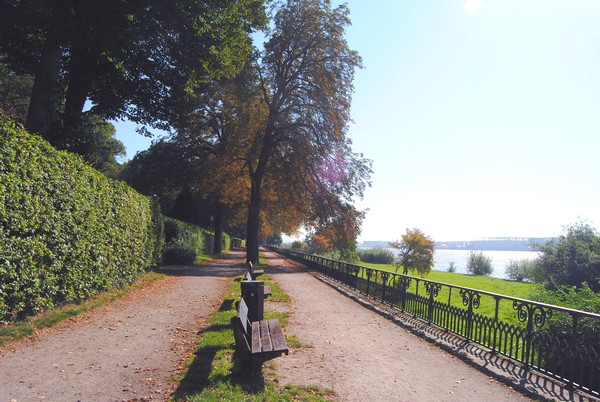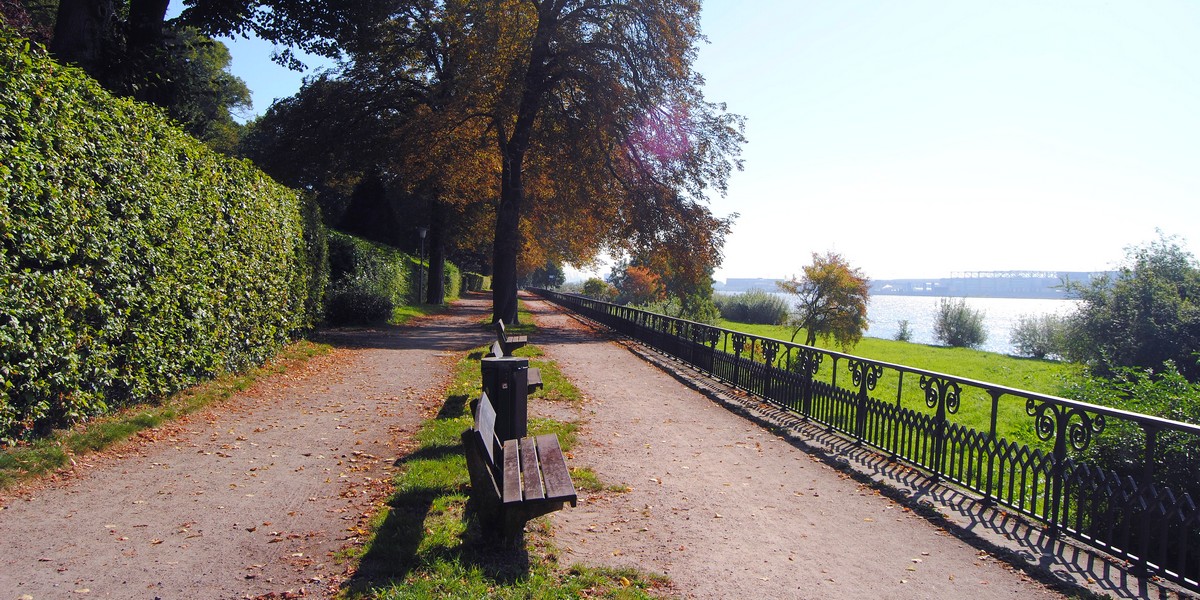
We say Schumann and Heine and think of Dichterliebe. It's understandable, because Dichterliebe is the composer's best-known cycle, but it is neither the only nor the first cycle by Robert Schumann with poems by Heinrich Heine. The first one is the Liederkreis, which, as I told you a few years ago when I presented it, was also the first cycle he composed (needless to add that it was 1840) and the first work for voice he published. A few days ago, I thought I hadn't listened to it for a while, as much as I like it, and I did it, of course; inevitably, I thought I'd share with you one of the songs.
The nine poems of Lieder, the second part of Junge Leiden, which is the first book of the Buch der Lieder (mental note: to tell some day about the Buch der Lieder) begin by expressing expectations and hopes and end with the frustration of an unrequited love. The two songs we heard so far (Schumann set the nine pomes in the same order they were published), which are the seventh, Berg' und Burgen schaun herunter and the ninth, Mit Myrten und Rosen, correspond to this end, perhaps bitter, but not tragic. Today I propose that we listen to the song that represents the turning point between hope and disappointment, the fifth one, Schöne Wiege meiner Leiden [Pretty cradle of my sorrows]: the poet says farewell to the city where his love was born and leaves behind, at least physically, the beloved.
The first verse of the poem marks the musical character of the vocal line, a cradle song. The second verse, however, tells us of a grave; the poet refers to the place where his peace rests, and the piano conveys his concern, so we hear one of Schumann's beautiful tunes altered, so to say, by an underlying agitation; it's an effect that catches the listener. In the first two stanzas, the poet addresses the city he leaves, and both share the same music, in a way that makes us think that the song will be strophic. But in the next five stanzas he addresses the beloved, and reproaches don't fit the tune we're hearing; without having time to prepare for change, the third stanza begins, irate; the anger will become pain towards the end, and the sad words of the fourth stanza will take up again the music of the first.
The fifth stanza suddenly begins with a new burst of anger, and we can think that Schumann is repeating a scheme: after the outburst, the initial melody will come back. But the composer gives a twist, and joins the last two verses of this stanza with the sixth one in a new musical strophe, a precious lament. The poem ends here, but the song doesn't; the song ends with the repetition of the first stanza. With this, the composer gets three things: a gift for the listeners, to let us hear, once again, the cradle song; to soften the end of the poem, and to introduce a long postlude. Don't know about you, but this postlude makes me think that, now, the poet is really leaving, after saying farewell one more time; he says lebe wohl, an expression that sounds definitive. If you count how many times we hear these words, you should get eight. And in the end... He goes silent.
Would it be exaggerated to say that Schöne Wiege meiner Leiden is one of Robert Schumann's most beautiful Lieder? We will listen to it in a recording from a young Christopher Maltman accompanied by Graham Johnson, made almost 20 years ago. How time flies!
Schöne Wiege meiner Leiden,
Schönes Grabmal meiner Ruh’,
Schöne Stadt, wir müssen scheiden, –
Lebe wohl! ruf’ ich dir zu.
Lebe wohl, du heil’ge Schwelle,
Wo da wandelt Liebchen traut;
Lebe wohl! du heil’ge Stelle,
Wo ich sie zuerst geschaut.
Hätt’ ich dich doch nie gesehen,
Schöne Herzenskönigin!
Nimmer wär es dann geschehen,
Dass ich jetzt so elend bin.
Nie wollt’ ich dein Herze rühren,
Liebe hab’ ich nie erfleht;
Nur ein stilles Leben führen
Wollt’ ich, wo dein Odem weht.
Doch du drängst mich selbst von hinnen,
Bittre Worte spricht dein Mund;
Wahnsinn wühlt in meinen Sinnen,
Und mein Herz ist krank und wund.
Und die Glieder matt und träge
Schlepp’ ich fort am Wanderstab,
Bis mein müdes Haupt ich lege
Ferne in ein kühles Grab.
pretty tombstone of my rest,
pretty town - we must part, -
farewell! I call to you.
Farewell, you holy threshhold,
across which my darling would tread;
farewell! you sacred spot
where I first saw her.
Would that I had never seen you,
lovely queen of my heart!
Never would it then have happened,
that I would now be so wretched.
I never wished to touch your heart,
I never begged for love;
all I wished was to lead a quiet life
where your breath could stir me.
Yet you yourself pushed me away from you,
with bitter words at your lips;
Madness filled my senses,
and my heart is sick and wounded.
And my limbs are heavy and sluggish;
I'll drag myself forward, leaning on my staff,
until I can lay my weary head
in a cool and distant grave.
(translation by Emily Ezust)



 The Kin...
The Kin... Th...
Th...










